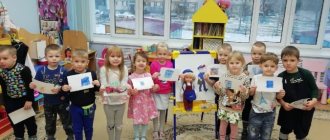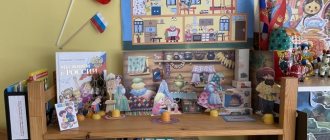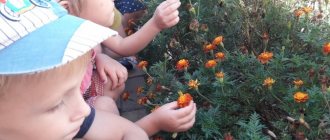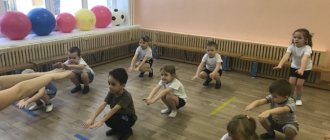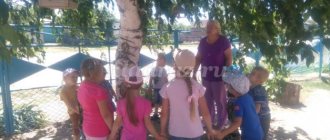Stories about wintering birds
Stories about wintering birds by famous children's authors
Yu. Dmitriev “Bullfinch”
You know, many birds fly south with the onset of cold weather. And there are those who come to us only in winter. And they are called “bullfinches” because they appear with us along with the snow. What kind of strange desire is it to live here in winter, when it’s cold here and all the birds have been in the south for a long time? But the fact is that our forests are already “warm lands” for bullfinches: in the summer they live much further north, where there are very severe frosts.
Bullfinches are easy to recognize. Their red breasts, bluish-gray backs, black velvet caps and wings are clearly visible against the background of white snow. Bullfinches are respectable birds. They slowly fly in small flocks from tree to tree, politely yielding the best bunches of rowan to the females (who are colored the same, only their breasts are brownish-gray). When the song of the finch rings, the bullfinches will already be far in the north - in their homeland. They will build nests there, hatch and feed the chicks. And in late autumn or early winter, their low, ringing whistle will be heard again: “Ju... ju... ju... - we have arrived!” Welcome! Guests are always welcome in our forest.
G. Skrebitsky and V. Chaplin “What does a woodpecker feed in winter”
And winter came, it became cold. All the insects hid far away. What does a woodpecker feed on in winter? Look: there are many, many pine cones lying in the snow under the tree. What kind of tree is this? It's oak, not pine. Where did the pine cones underneath come from? Suddenly a woodpecker flew up to the oak tree; holds a cone in its beak. He stuck it into a crevice in a tree and began to peck it with his beak. He gouged it out, picked out the seeds and flew off to get another one. He brought another one, inserted it into the crevice, and pushed out the old lump. That's why there's a whole bunch of cones lying under the tree. This woodpecker feeds on their seeds in winter.
N. Plavilshchikov “If you haven’t seen it, you won’t believe it”
The trees are cracking because of the frost, and there is a nest on the tree, and a bird sits in the nest and warms its eggs. This brave bird is the crossbill. All birds build nests in the spring. Crossbills have their own rules. They hatch chicks when there is plenty of food. Winter, spring, summer - they don’t care. It would be satisfying.
Crossbill food is seeds from spruce and pine cones. The cones hang on the tree all year round. Crossbills have enough food even in winter; there is enough to feed the chicks. It's warm in the nest. The clusterbill does not fly away from the nest; the male brings her food. The chicks hatch, and then the mother sits in the nest, warms the naked chicks, and warms herself from them.
Where there are a lot of cones, there are a lot of crossbills. There are few cones - no crossbills, they have nothing to do in such a forest: there is no food. Crossbills have special noses - cross-shaped. This nose is very convenient for picking out seeds from cones.
If you want to see a crossbill, look for it in the spruce forest. Don’t look down, but look at the tops of the trees. You will see - there, high, high, near the cones, birds are climbing on the branches, near the cones, birds are climbing on the branches, hanging upside down - there they are, crossbills! And if you listen, you will hear: “kle-kle-kle.” These are the crossbills calling to each other.
V. Bianchi “A flock of birds under the snow”
A hare galloped through the swamp. From bump to bump, from bump to bump, yes - bang! - he fell into the snow up to his ears. And he feels with his scythe: something living is moving under his feet. At that same moment, white partridges began to burst out from under the snow around him with a loud flapping of wings. The frightened hare ran back into the forest.
It turned out that a whole flock of white partridges lives in the snow in a swamp. During the day they fly out, walk through the swamp, and dig up cranberries. They bite - and again into the snow. They are warm and safe there. Who will notice them under the snow?
I. Poluyanov “Carnation”
The forest sleeps in a winter slumber, enchanted by the cold and snow. And it emanates from him a light sadness and peace... The swans flew far, far away. And the mighty eagles - the giants of the bird world - left the rocks and dead pines, from where they had been watching for prey. No wings will rustle, no clear voice will disturb the winter slumber...
But the kings stayed with us! The wren is a baby, all the size of a dragonfly, and the conifers are his home. The wren silently flutters along the branches, as if from floor to floor. He picks out the hanging moss, picks off scales from the branches, and the yellow feathers on his head are like a golden crown.
The wren is restless and active - it is not for nothing that it is popularly nicknamed the “carnation”. Really nails it: for every crack, wherever midges and spiders hide for the winter. It destroys a million forest pests a year. The wind blows the kinglet from the tops of the fir trees, the blizzard covers it with snow, the frost penetrates through... The stubborn one does not give up, he keeps watch in the coniferous sea of forests.
Vitaly Bianki “A Piece of Bread”
Only the well-fed do not fly to the garbage heap in winter. But there are few well-fed people in winter. Hungry bird eyes see everything. Sensitive ears hear everything. Do you think that since bird ears are not noticeable, they are not sensitive? No matter how it is! The door creaks quietly - and the birds hear. The hostess will throw out the slop from the bucket - they will immediately see it. If he leaves, they’ll be right there. They are crows, jackdaws, magpies and jays. Birds are smart, careful, cunning. They know a person and know when to be afraid of him. Most of all they love those who do not pay attention to them. But it’s hard not to pay attention to them.
The crows fly in, rustling with damp wings, and blinking funny, flickering their white eyelids. It's like they're rolling their eyes with pleasure. Magpies have snowflakes sparkling on their black velvet backs. And the tails and wings seem to be painted with oil: they are cast in green, purple and yellow.
Black jackdaws wear gray collars, their eyes are white and surprised. The jay is the most elegant of all: a red crest, blue on the wing - like ripples on the water. Okay, clever. It will fill your mouth full, even your throat will swell. And quickly into the forest: put them in the corners. It disperses and flies again. It's scary, but it flies. Out of fear, even his mouth opens and the little crest stands on end. He even mutters something under his breath. But hunger is even worse.
Hunger drove the disabled jackdaw. Some hunter shot off the lower half of its beak. Neither peck, nor take, nor clean the feathers. She sat down, strangely thin-nosed, disheveled, emaciated, with icicle feathers on her belly. Come what may. She put her head on the snow and grabbed the piece sideways. A piece is a day of life. Will it be there tomorrow too? Birds are visible and invisible around the home.
The door knocked: friend or foe? With a bucket or with a gun? It would be better to hide, but we have to fly. Only the well-fed one does not fly to the garbage heap in winter. And there are few well-fed people in winter.
Source
Let's play. Mobile Russian folk game "Woodpecker"
Children stand in a circle. The child playing the role of a woodpecker stands in the middle of the circle. Children dance around the woodpecker and say the first two lines:
“A woodpecker walks by the granary,
Looking for a grain of wheat."
The woodpecker says in response:
“I’m not bored alone, I’ll take whoever I want.”
With the last word, the woodpecker quickly takes the hand of one of the guys in the circle. And the children must quickly stand in pairs. The child left without a mate becomes a woodpecker in the next game.
